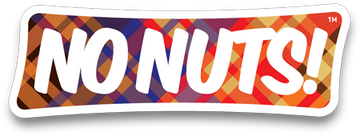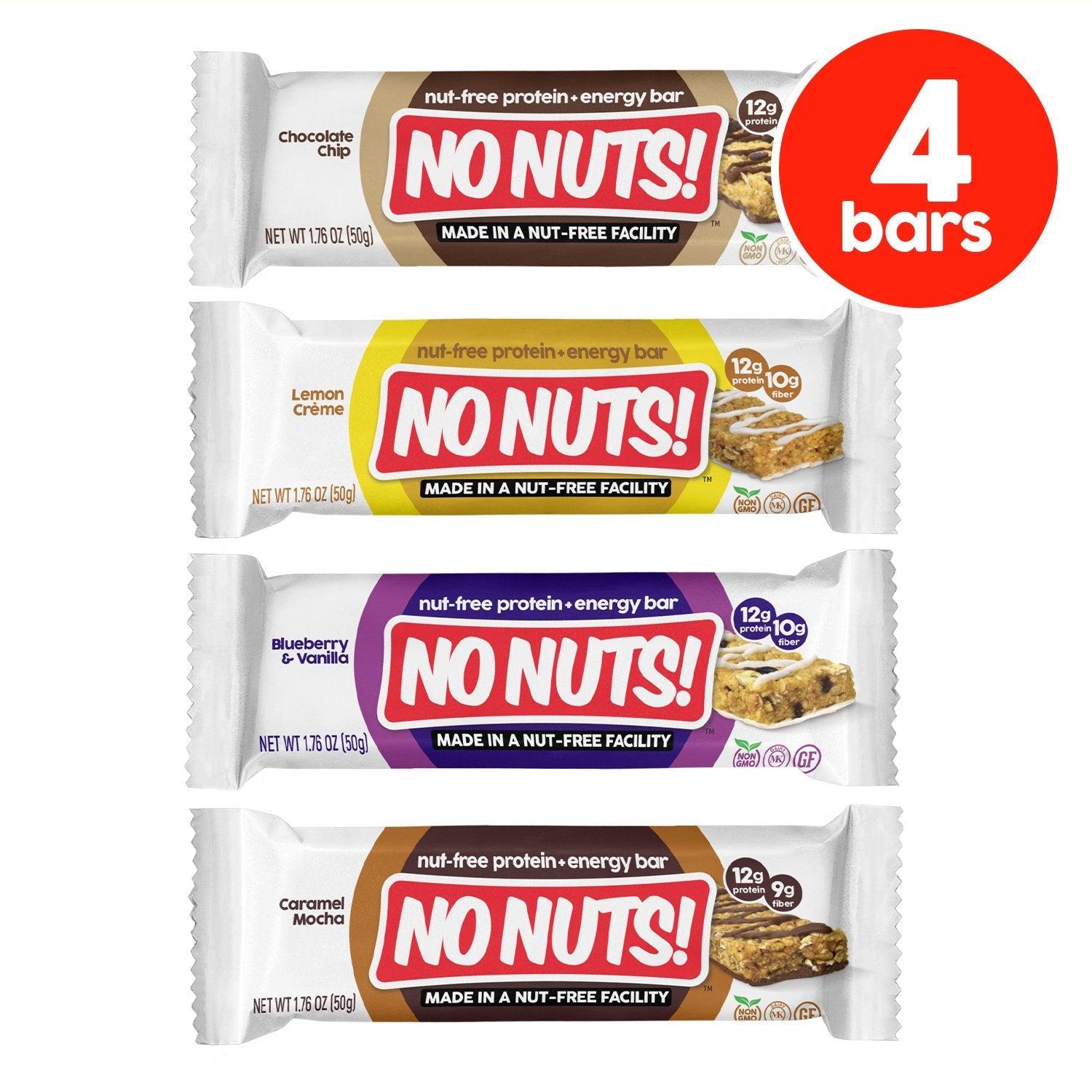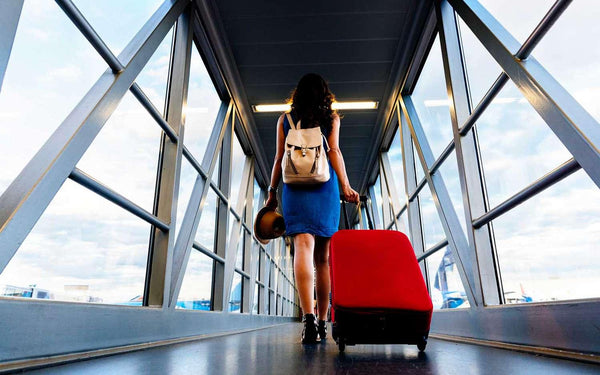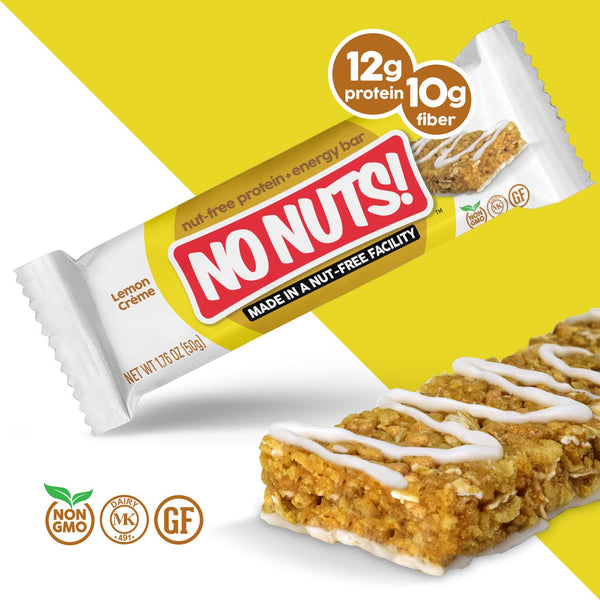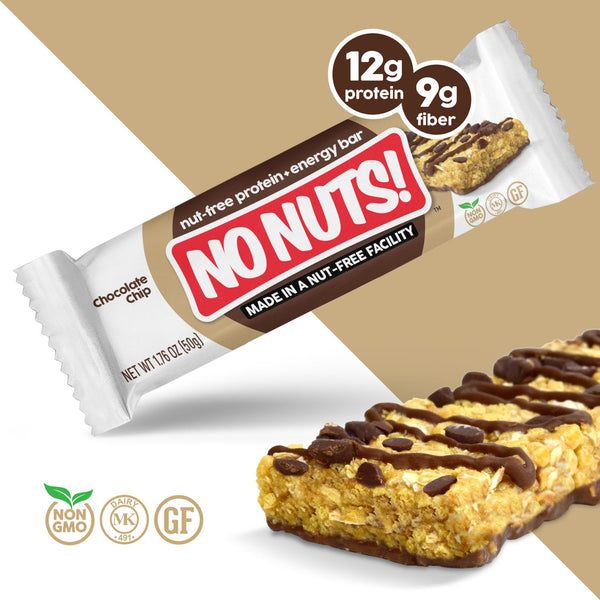12 Essential Tips for Traveling With Allergies
Apr 16, 2025
Traveling with allergies can be tricky, but with good planning, you can have a safe and fun trip. Here are 12 important tips to help you manage your allergies while exploring new places. These ideas will help you handle unfamiliar environments, tell people about your needs, and lower the chance of allergic reactions during your travels.
| Key Takeaways |
|---|
| • Pack ample nut-free snacks and emergency medications • Research your destination and communicate with airlines/hotels • Carry translation cards and a medical alert bracelet • Clean surfaces and choose self-catering accommodations when possible • Stay hydrated, well-rested, and consider travel insurance |
1. Pack Plenty of Nut-Free Snacks
One of the most important things to do when traveling with allergies is to bring safe snacks. Our No Nuts! Variety Pack is great for travel. It has different flavors of nut-free protein bars that are also gluten-free and vegan. Pack more than you think you'll need in case you can't find safe food options or your trip gets delayed. Having nut-free snacks you can trust means you'll always have something safe to eat, especially when local food might be risky.
2. Research Your Destination
Before your trip, learn about where you're going. Look for nut-free restaurants, allergy support groups, and nearby hospitals. This planning can help you feel less worried and make it easier to find safe places to eat. Check out our blog post on living a nut-free life safely for more tips. Also, learn about local food and common ingredients in traditional dishes to spot possible allergy risks. Try contacting local allergy groups for advice on safely eating out in your destination.
3. Communicate with Airlines and Hotels
When you book your flights and hotels, tell them about your nut allergy. Many airlines offer nut-free meals and can create a safe area around your seat. Hotels can often remove nut products from your room and tell their kitchen staff about your allergy. Read our guide on 7 tips for traveling on airplanes with nut allergies for more detailed advice. Make sure to check again closer to your travel date and when you arrive to ensure they remembered your requests. Bringing a doctor's note explaining your allergy can help support your requests for special arrangements.
4. Carry Multiple Epinephrine Auto-Injectors
Always carry at least two epinephrine auto-injectors with you. Keep them in your carry-on bag and make sure they're easy to reach. Check the expiration dates before your trip and learn how to use them properly. Store them in a clear, labeled container so they're easy to find in an emergency. Know how to store them correctly, as very hot or cold temperatures can affect how well they work. Tell your travel buddies where your auto-injectors are and how to use them in case you need help quickly.
5. Prepare a Travel-Sized Emergency Kit
Make a small emergency kit that includes:
Nut Allergy Travel Emergency Kit
- Antihistamines
- Epinephrine auto-injectors (at least two)
- Other prescribed allergy medications
- Copy of allergy action plan
- List of emergency contacts
Also think about adding a small first-aid kit with bandages and cleaning wipes, and a portable phone charger so you can always call for help if needed. Keep this kit in a waterproof container to protect it from water and make sure it's always easy to get to during your trip.
6. Use Translation Cards for International Travel
If you're going to a country where you don't speak the language, make cards that explain your nut allergy in the local language. Include phrases like "I have a severe nut allergy" and "Does this contain nuts?" It's best to have these cards professionally translated to make sure they're correct. Include details about cross-contamination risks too. While translation apps can be helpful, having physical cards is important in case your phone dies or there's no internet. Practice saying key phrases to go along with your written cards.
7. Clean and Wipe Down Surfaces
Bring disinfectant wipes to clean surfaces in airplanes, hotels, and restaurants. This extra step can help reduce the risk of accidentally touching nut residue. Check out our blog post on nut-free summer travel essentials for more packing tips and snack ideas. Pay special attention to areas many people touch, like tray tables, armrests, and TV remotes. You might want to bring a small air purifier for your hotel room to help clean the air. Remember to wash your hands often, especially before eating, to further lower the risk of accidental exposure.
8. Choose Self-Catering Accommodations When Possible
Try to stay in places with kitchens. This way, you can cook your own meals, giving you more control over your food and reducing the risk of cross-contamination. Look up grocery stores near where you're staying that sell allergy-safe foods. When booking, ask about how they clean kitchen areas and utensils to make sure they meet your safety needs. You might want to bring some of your own cooking tools, like a small cutting board or utensils, to be extra safe.
9. Wear a Medical Alert Bracelet
A medical alert bracelet can quickly tell others about your nut allergy in an emergency, especially if you can't speak. Choose a bracelet that clearly states your allergy and any emergency instructions. Some bracelets have a QR code that links to more detailed medical information. Modern medical alert bracelets can connect to smartphone apps that store your full medical history and emergency contacts, giving first responders important information in emergencies.
10. Plan Ahead for Restaurant Dining
Before your trip, look up nut-free restaurants at your destination. When eating out, always tell the staff about your allergy, ask about ingredients, and ask how they prevent cross-contamination in the kitchen. Try calling restaurants ahead of time to discuss your allergy and see if they can accommodate your needs. Look for places that have allergy-friendly certifications or good reviews from other travelers with food allergies. If possible, eat during less busy times when kitchen staff might have more time to carefully prepare your meal.
11. Stay Hydrated and Well-Rested
Staying hydrated and well-rested can help your body handle potential allergen exposures better. Pack our refreshing No Nuts! Lemon Creme bars or satisfying No Nuts! Chocolate Chip bars for a quick energy boost and hydration support during your travels. Being dehydrated or tired can make your immune system weaker and possibly make allergic reactions worse. Try to drink lots of water, especially when flying or in hot places. Try to keep a regular sleep schedule, even in different time zones, to help your body stay healthy during your trip.
12. Consider Travel Insurance and Emergency Plans
Think about buying travel insurance that covers food allergy emergencies. Learn the local emergency numbers and where the nearest hospitals are at your destination. Find out about the quality of medical care available and if they know how to treat severe allergic reactions. Make a detailed emergency plan that includes what to do if you have an allergic reaction, important phone numbers, and where the closest hospitals are. Share this plan with the people you're traveling with and keep a copy with your emergency kit. You might want to register with your country's embassy or consulate where you're going for extra help in case of medical emergencies.
Conclusion
Traveling with nut allergies takes extra planning, but it shouldn't stop you from exploring the world. By following these tips and packing safe, tasty snacks like our GoNoNuts bars, you can enjoy your trip with confidence. Remember, being prepared is the key to a safe and fun journey! With careful planning and staying alert, you can lower risks and focus on making great memories during your travels. Keep learning about new ways to manage allergies and travel tips to keep improving your travel experiences.
Browse our full range of nut-free snacks to stock up for your next adventure.
GoNoNuts Nut-Free Snacks
Pack No Nuts! Lemon Creme or Chocolate Chip bars for quick energy
Epinephrine Auto-Injectors
Essential emergency medication for severe allergic reactions
Allergy Translation Cards
Help communicate your allergy in local languages at your destination
Medical Alert Bracelet
Quickly informs others of your nut allergy in case of emergency
